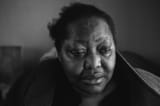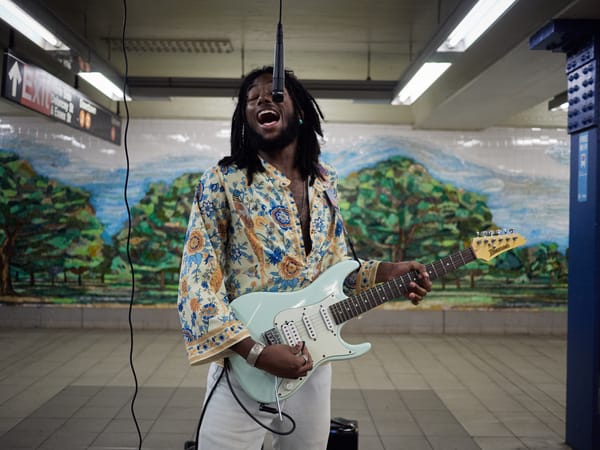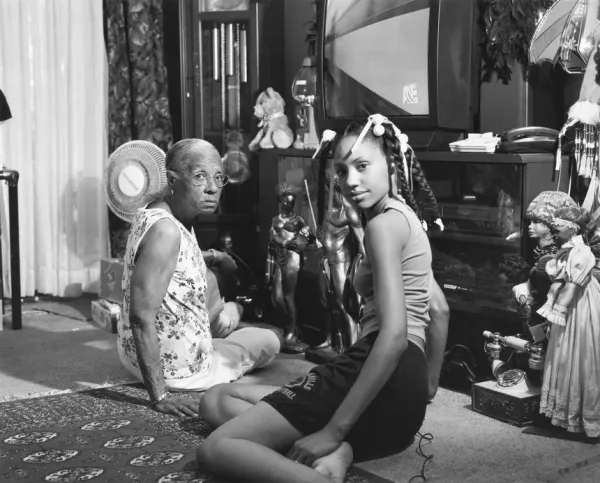Who’s Missing from Your Timeline?

Take a moment and scroll through your social media feed. Think about the podcasts you subscribe to, the films you watch, the books on your shelves, and the newsletters in your inbox. Now ask yourself one simple but revealing question:
Who’s missing?
Our timelines, both online and offline, are shaped by our choices. They reflect who we listen to, who we trust, who we learn from, and who we centre in our day-to-day thinking. If those timelines are filled mostly with people who look like us, think like us, or share our worldview, we may be missing out on the voices that matter most.
This post is not about guilt. It’s about awareness. It’s about recognising the filters we carry, the systems we inherit, and the habits we form, often without noticing. And most importantly, it’s about what we can do to build broader, braver, more inclusive spaces in our digital and real lives.
Why Timelines Matter
Your timeline is not just entertainment. It’s a learning environment. It shapes your worldview, whether you realise it or not.
What you see regularly becomes familiar. What’s familiar feels normal. What feels normal begins to feel true.
That’s why representation is so powerful. And why the absence of certain voices, especially Black voices, can reinforce harmful ideas, even when no one intends it.
The Digital Echo Chamber
Social media algorithms are designed to keep you comfortable. They prioritise what’s familiar, what aligns with your past engagement, and what keeps you scrolling. Over time, this creates a bubble where only certain voices get amplified, while others are made invisible.
In the context of race and justice, this matters deeply. If your feed only reflects white perspectives, even on issues that impact Black communities, you’re seeing a filtered version of reality. You may miss the nuance, depth, and lived experience that only Black creators, thinkers, and communities can offer.

Who Typically Gets Left Out?
Even among people who consider themselves socially aware, certain voices are consistently underrepresented in their daily media diet.
Here are some patterns we’ve observed:
- Black women are often erased from conversations they helped lead
- Black queer and trans voices are rarely elevated, especially in mainstream activism
- Black creatives in the UK are underrepresented compared to their US counterparts
- Local Black communities and leaders are overlooked in favour of high-profile figures
- Grassroots organisers, educators, and thinkers remain hidden behind trending influencers
If your timeline reflects these gaps, you’re not alone. But you can choose to change that.
The Cost of Absence
When certain voices are missing, it’s not just about representation. It’s about truth. It’s about power. And it’s about what gets normalised as valid or important.
Here’s what happens when Black voices are missing from your timeline:
1. You Risk a Shallow Understanding
Without lived experience, conversations about race, equity, and justice can become theoretical. You may miss the emotional weight, the historical context, or the cultural nuance that turns knowledge into wisdom.
2. You Centre Dominant Narratives
If your information only comes from the mainstream, you’re likely consuming a version of events shaped by white frameworks. That version is often incomplete, sometimes distorted, and rarely liberating.
3. You Miss Opportunities to Learn
Black creators, scholars, activists, and artists are constantly pushing the boundaries of thought and culture. If they’re not on your radar, you’re missing out on some of the most powerful and transformative thinking available.
So, Who’s on Your Timeline?
Let’s get practical. Here’s a list of reflective questions to help you assess and shift your digital ecosystem.
- Do the people I follow reflect a wide range of racial and cultural backgrounds?
- How many Black thinkers, artists, educators, or creators do I follow?
- When I learn about issues like racism, whose voices am I listening to first?
- Do I engage with local Black-led work, or only with global, American content?
- Do I follow Black people with a variety of lived experiences — across gender, class, ability, and sexuality?
This is not about tokenism or numbers. It’s about curiosity. It’s about asking yourself, What am I not seeing? And why?

How to Build a More Inclusive Timeline
Changing your media habits doesn’t require a complete overhaul. It begins with a mindset of openness, followed by intentional action.
Here are some ways to build a more inclusive and justice-aligned media ecosystem:
1. Follow Black Creators and Thinkers
Seek out Black voices in your area of interest. Whether you love art, tech, fashion, theology, or economics, there are Black experts, storytellers, and innovators in those fields. Follow their work. Share it. Learn from them.
2. Diversify Your News Sources
Mainstream media often misses key stories or frames them in limiting ways. Follow independent Black-led news outlets and journalists who offer critical insight into local and global events.
3. Curate With Intention
Social media rewards quick engagement. It does not reward depth. That means you have to curate with care. Don’t just follow who the algorithm recommends. Seek out accounts that challenge you, educate you, and broaden your view of the world.
4. Engage with Black British Content
So much anti-racism conversation is filtered through an American lens. While that’s important, it’s not the full picture. If you live in the UK, make sure your timeline includes Black British voices, particularly those rooted in local history, organising, and creativity.
5. Listen Without Needing to Comment
Sometimes the best thing you can do is simply be present. You don’t always need to reply or add your voice. Practice listening. Let what you hear shape your next steps.
theBLKGZE: A Platform to Start With
At theBLKGZE, we exist to centre Black lives and lived experience. Our platform highlights underrepresented voices in photography, documentary, cultural storytelling, and social research.
We create work that challenges dominant narratives and reclaims space for truth and beauty. Our content is made with care, with context, and with a commitment to justice.
If your timeline is missing Black British voices, we invite you to follow us, share our work, and spend time with the stories we’re telling. We are not here to perform for the algorithm. We are here to be seen, clearly, fully, and on our own terms.
Why This Matters for Allies
If you’re a non-Black ally who wants to show up well, your timeline is a good place to start. What you consume shapes what you value. And what you value shapes how you act.
Representation is not about being politically correct. It’s about telling the truth. It’s about healing from erasure. And it’s about building relationships that are rooted in respect, not pity or saviourism.
By choosing to follow Black voices, you’re not doing anyone a favour. You’re doing what it takes to see the world more clearly.
Final Thoughts: Awareness Is a Daily Practice
Dismantling racism is not a task for special occasions. It’s not something you only think about during Black History Month or in the aftermath of tragedy.
It happens in everyday choices. Who you listen to. Who you support. Who you make visible.
So take a moment today to check your timeline. Ask yourself who’s missing. Then take the next step to fill that gap, not for diversity’s sake, but because you believe in truth, equity, and shared humanity.
This is how change begins. Quietly. Consistently. One choice at a time.
Share on social
If this story sparked something in you, share it. Our voices are powerful, and when we lift each other up, we all see a little clearer.





